Gravestones in yards, skeletons in trees, and accessible-friendly walkways, oh my!
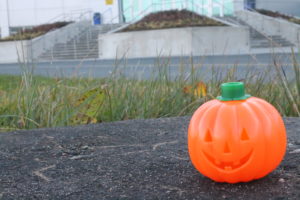
Jasmine Burt
Kicker
As the night of tricks and treats approaches, it’s important to remember that not everybody coming to the door for treats is verbal or can master your spider-web covered staircase.
Over six million Canadians live with some form of disability. In Newfoundland and Labrador, many buildings and homes are not fully accessible making Halloween even more of a struggle for people with disabilities.
Tess Hemeon is the chief operating officer of the Autism Society of Newfoundland and Labrador.
“Halloween can be challenging for individuals with autism, particularly because of the change from routine, the social implications of trick-or-treating,” said Hemeon in an emailed response. “Halloween parties can be difficult to manage because of music, lights, and non-standard interaction.”
The Autism Society of Newfoundland and Labrador wants Halloween to be fun and easy for everyone.
“At Autism Society NL, we do our best to provide unique ways to make Halloween more accessible for people with autism,” she said. “Each year we host a Halloween party at our headquarters. This is a friendly welcoming environment where kids of all ages can dress up if they wish, and almost do a trial run of what Halloween parties in school will be like the following week.”
The autism society headquarters is an accessible-friendly place to bring children during the spooky season.
Cory Chaulk, an autism advocate in St. John’s, wishes he could bring his daughter trick-or-treating.
“All I’m hearing from speaking to people online is pretty much the same thing, a lot of children who have autism are afraid of the costumes,” Chaulk said.
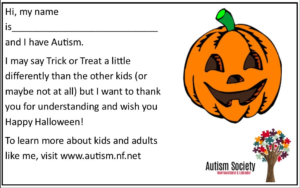
Instead, he will be at home looking for people with blue pumpkins coming to his doorstep on Halloween night.
In the month of October, a craze on Twitter suggested that people with Autism carry a blue bucket to signal they may be non-verbal.
Some controversy arose from families. With Washington Post and CBC articles questioning the practice. Some parents were offended that their children were singled out and expected to carry a different coloured pumpkin.
“We also create a handout for families to use at the door while trick-or-treating. It gives a short explanation of autism. Some individuals with autism may have alternate ways of communicating, or may not want to dress up at all,” Hemeon said.
“We want people to still welcome these kiddos and understand that there may be a reason why the trick-or-treater on their doorstep may act a little differently than expected.”
Editor’s note:

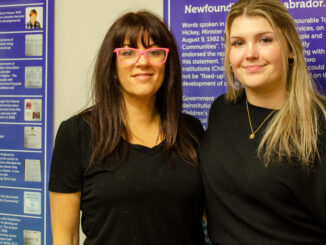
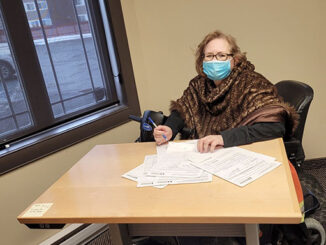
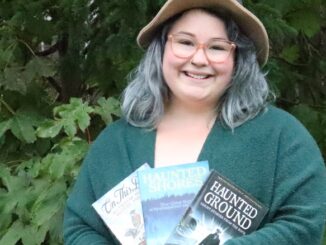
Be the first to comment